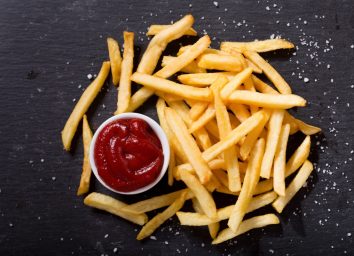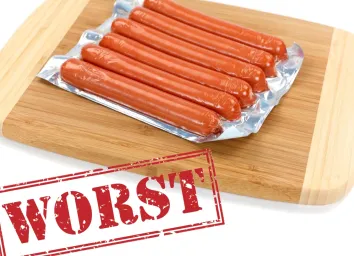30 Healthy Habits to Start By Your 30s

Raise your hand if you once thought your metabolism would help you burn off late night pizza and beer forever. Hey, you’re not the only one.
Unforunately, most young adults tend to put developing good diet and fitness habits on the back burner — behind working your way up the corporate ladder or starting a family. And while your career and relationships are certainly important — newsflash! — you won’t be able to stay fit forever without putting in some extra work.
In fact, studies show that the diet and lifestyle habits we form in early adulthood have significant effects on how well we age, and, depending on which routines you adopt, these can either be positive or negative.
One such study, published in the journal Circulation, found that sixty percent of young adults who maintained five healthy lifestyle factors — a lean body mass index (BMI), no excess alcohol intake, no smoking, a healthy diet, and regular physical activity — were able to reach middle age with the lowest risk of heart disease.
So before you turn the big 3-0 (or, if you already have), here are 30 habits you can ingrain into your daily routine to set yourself up for a successful, healthy life. Want to continue your lifestyle overhaul? Double down by kicking these 40 Bad Habits That Make You Fat to the curb.
Learn to Cook

You’ll save money—and calories. Home cooks save hundreds of calories a day, according to Johns Hopkins researchers. Start slowly by trying a new recipe every week; and for those of you who still have trouble keeping your toast from burning, check out our 20 Fast and Easy Dinner Recipes for Weight Loss.
Eat Food, Mostly Plants
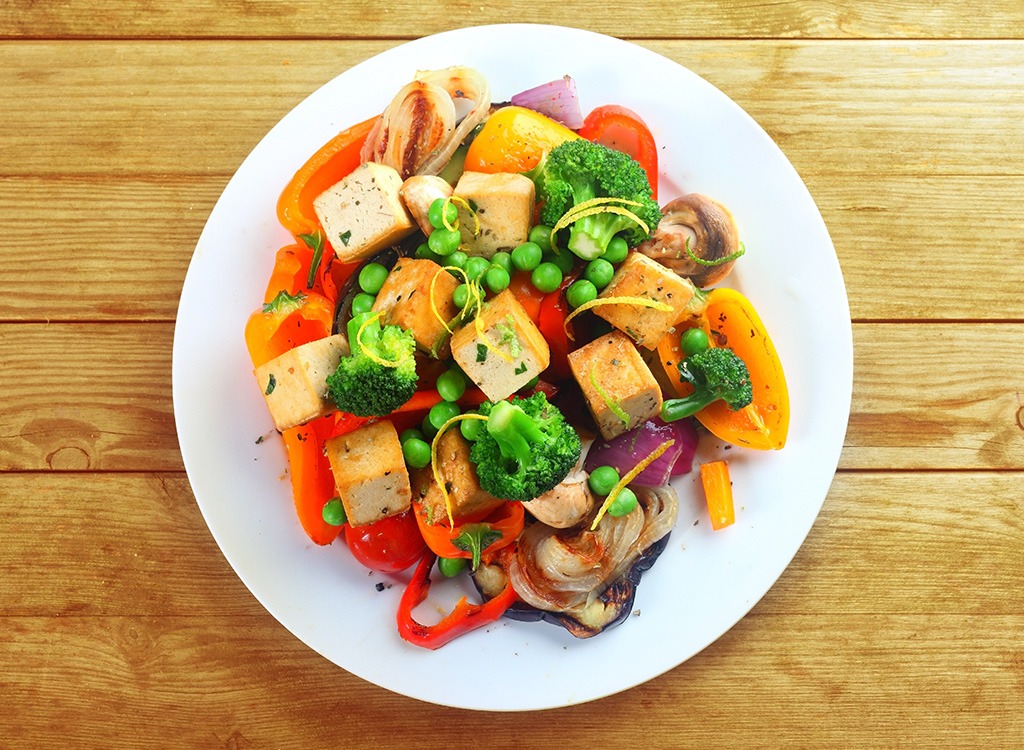
There are two parts to this mini mantra, developed by James-Beard-award-winning food writer, journalist, and activist Michael Pollan. One: eat real food, not the ultra-processed junk that a BMJ Open study found contains 90 percent of the health-harming added sugar we consume. And two: if you fill up your plate with mostly plants, you’ll likely live a long life. Studies have connected plant-based, high-fiber diets to good gut health, a lower risk of metabolic diseases, low body-fat levels, and better regulation of body weight. It’s so important, in fact, that organizations like the Physicians Committee for Responsible Medicine encourage their health-care providers to prescribe a whole-food, plant-based diet to their patients. Get a head start with these vegan foods.
Weigh Yourself Often
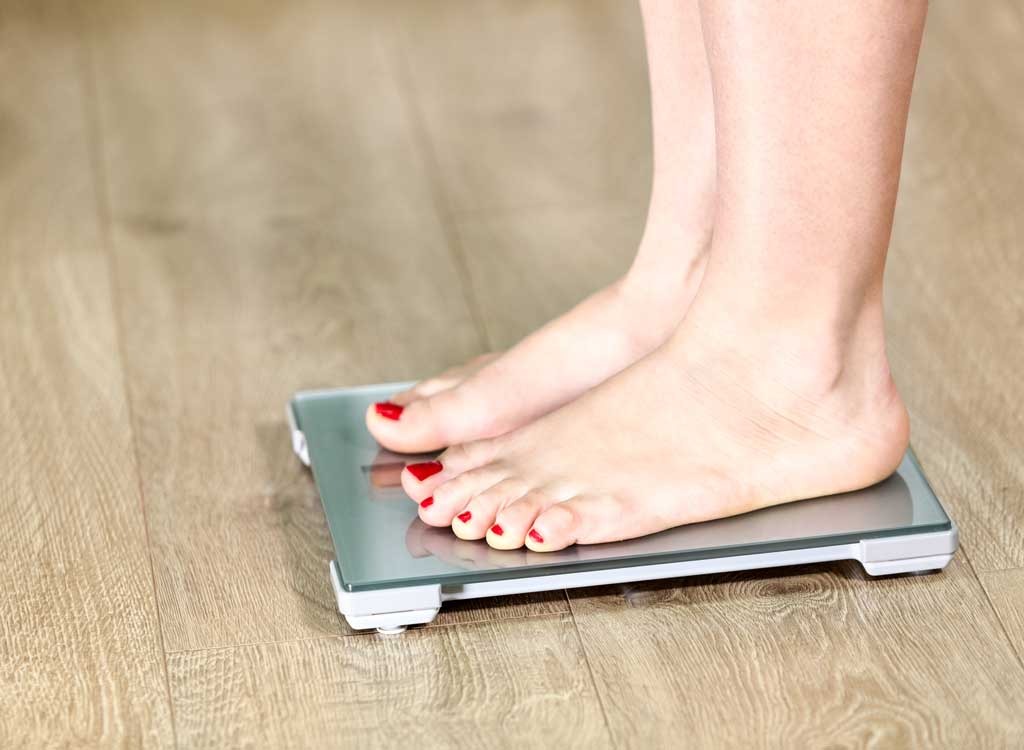
A 2015 Cornell University study suggest that keeping an eye on your weight may be a favorable approach to weight loss. According to senior author David Levitsky, people who weigh themselves daily and track the results are more likely to lose weight and keep it off than those who check in less often. The method “forces you to be aware of the connection between your eating and your weight,” Levitsky said in a press statement. He explained that the scale acts like a “priming mechanism,” which makes you conscious of food choices.
Listen To Your Body

After having to deal with the complaints of a constantly bloated best friend for years, I finally convinced her to seek a doctor’s advice. Turned out, she had a dairy intolerance. Many of us try to work through minor health ailments, but in doing so, we might be missing signs of a food intolerance or allergy. Some of the repercussions? Extra inflammation, a weakened immune system, and weight gain. Learn to listen to what your body tells you by keeping note of any discomforts in a food journal, or call in the dietician pros.
Keep a Well-Stocked Fridge
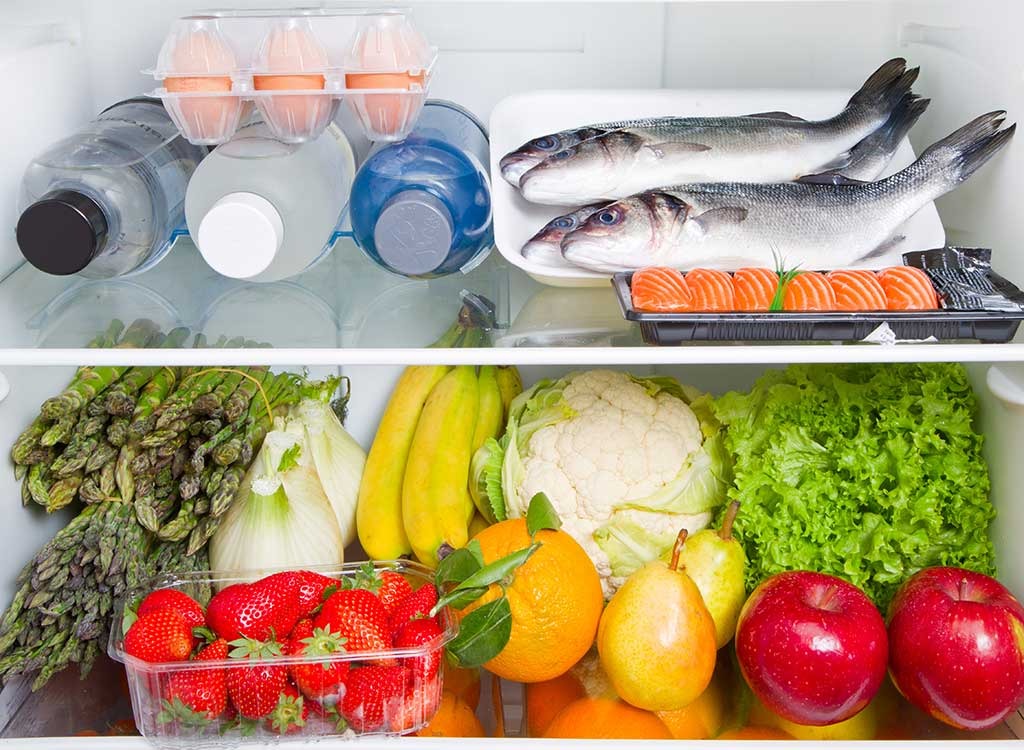
When you’re hungry, studies show that people will often reach for whatever food is closest to them—like those cupcakes your roomie left on the kitchen table. The easiest way to keep yourself from making unhealthy food choices is to arm yourself with waistline-friendly snacks. Fill up your fridge with pre-cut veggies and keep canned tuna in the pantry for some quick protein. Don’t know which brands to buy? Check out these 20 Healthy Pantry Staples.
Don’t Fear Fat
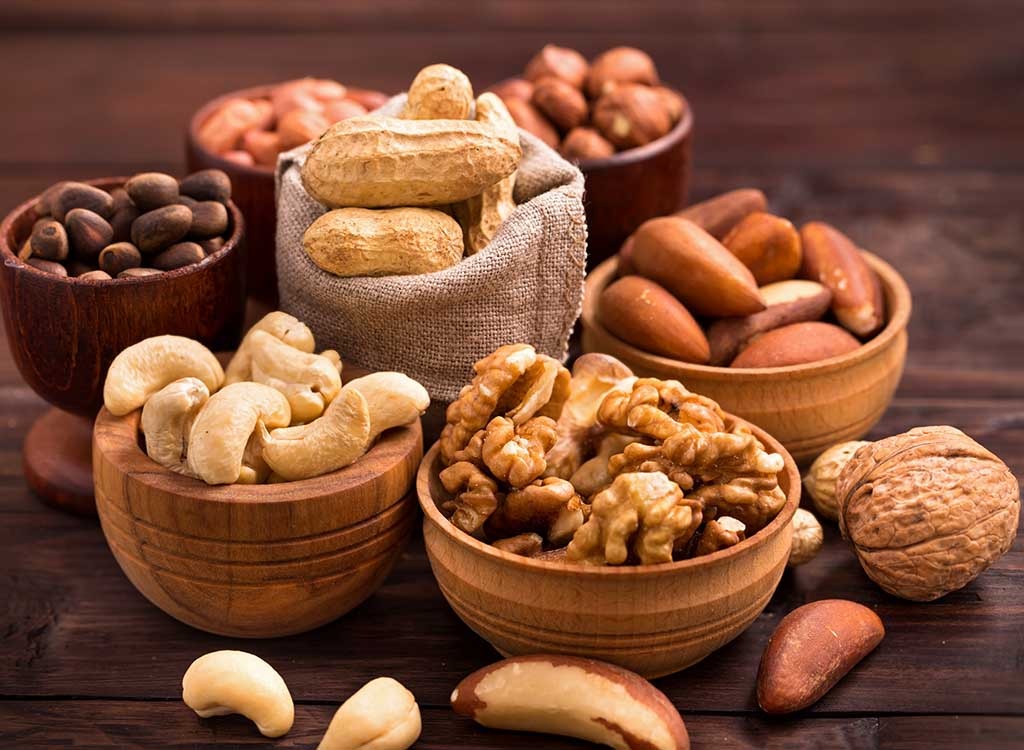
Eating healthy fats doesn’t make you fat. In fact, quite the contrary. Studies show that those who consumed full-fat dairy have lower weights than those who eat skim and participants who consume monounsaturated-fat-rich avocado with their lunch report a 40 percent decreased desire to eat for hours afterwards.
Spices Will Liven Up Most Dishes
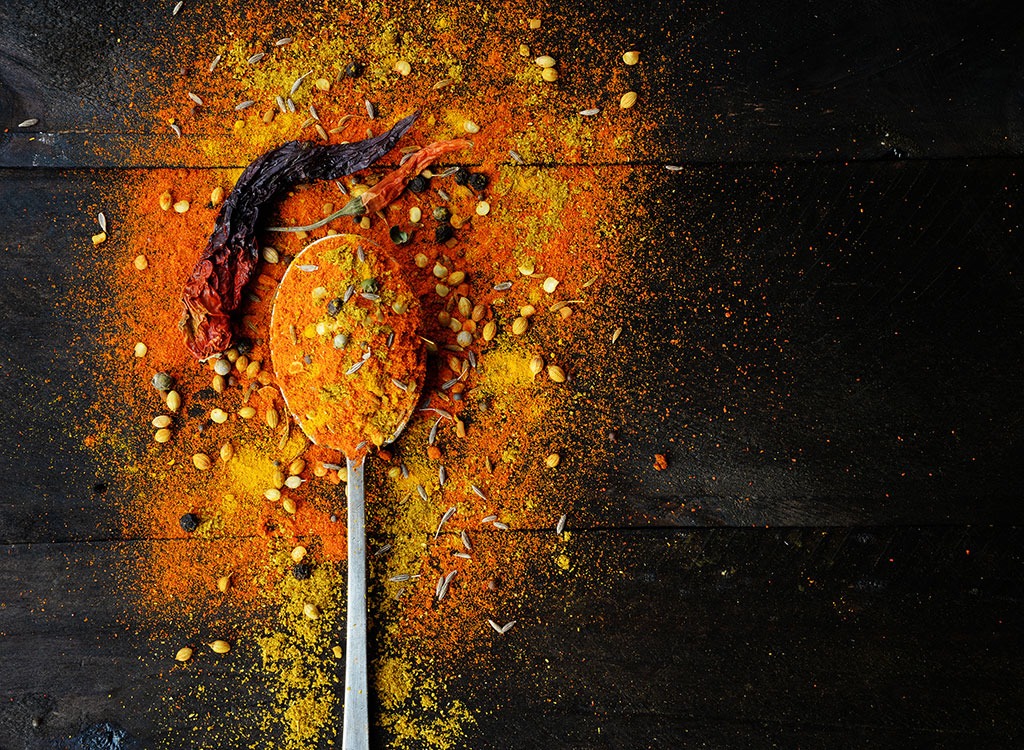
Deep frying food isn’t a must for good taste. Adding a spice blend will wake up your taste buds and can actually provide some health benefits. Cinnamon has been shown to help your body regulate blood sugar and turmeric has anti-cancer properties!
Pick Quality Over Quantity
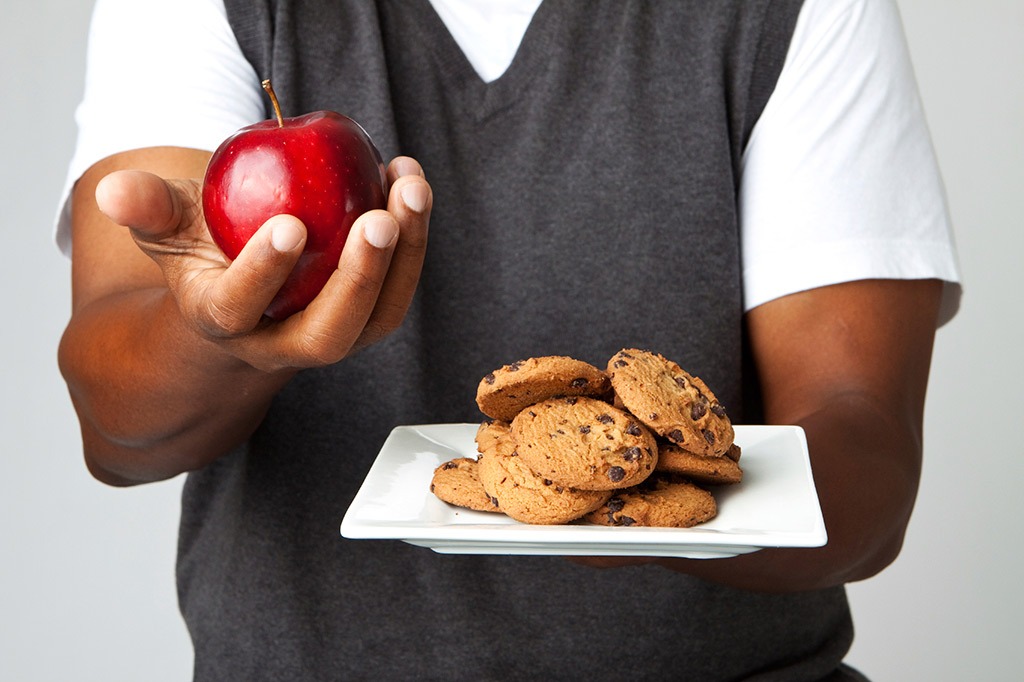
When it comes to both friends and calories, quality and quantity are both important. However, if you can only pick one, go with the former. The reason: Your body won’t process the calories from a slice of cake or a can of soda in the same way it would a nutritious whole-food meal or snack. Since junk food lacks nutrients (like fiber to keep hunger at bay), it can increase hunger and ultimately cause weight gain.
Limit Added Sugar to 10 Grams Per Serving
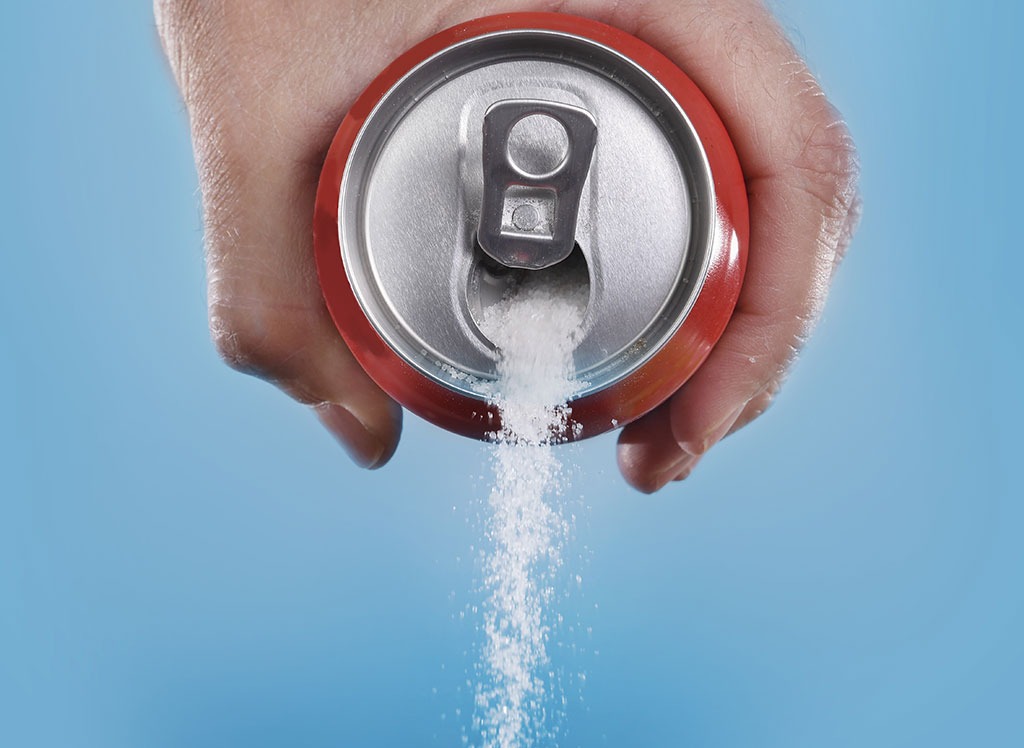
It’s one of the main drivers of obesity. We’re not talking about fast food, we’re talking about sugar. A study in the Journal of the American Medical Association found that people who ate up to 21 percent of their calories from added sugar had a 38 percent higher risk of dying from heart disease than those who only ate 8 percent of calories from the sweet stuff. As a rule of thumb, limit your intake of this inflammatory ingredient to no more than 10 grams of sugar per serving.
Develop an Exercise Routine

Establish a good exercise routine when you have the time now—because those other facets of life (college funds, mortgages, etc.) will only get more demanding. To help get your started, take a page out of a study from New Mexico State University; Researchers found that although many individuals who worked out three times a week starting exercising on a whim, the reason they made breaking a sweat a habit was because of a specific cue and a specific reward. For example: Want to start running? Your cue can be going at the same time every day and your reward can be watching an episode of your favorite show. Soon enough, the rewards inherent in exercise (like those happy hormones!) will be enough to get you excited to hit the road. For more tips, check out 18 Ways to Get Motivated for Morning Workouts.
Don’t Leave Junk In Plain Sight
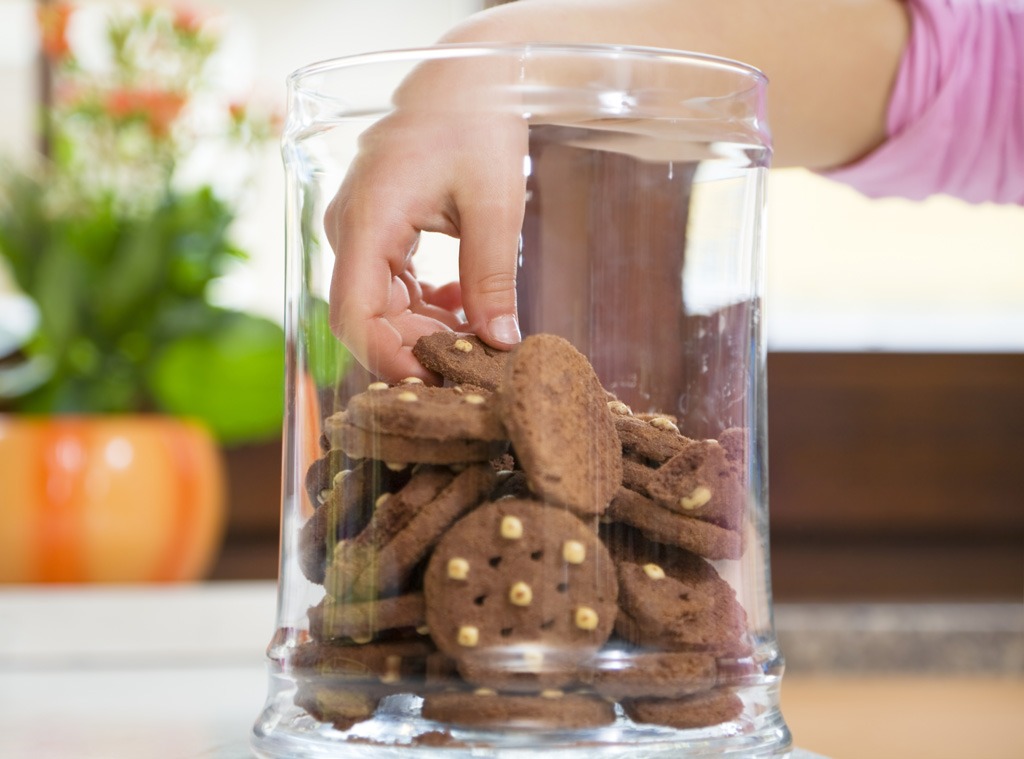
Do leave fruit on the counter. When you keep your vices visible on kitchen counters or in prime storage space, you set yourself up for failure. Better yet, don’t even buy it in the first place! That way, when you’re craving a cookie, you’ll have to go out to buy it.
Fidget At Your Desk

A couple of the negative consequences of a sedentary lifestyle? Obesity, type II diabetes, cardiovascular disease, and early death. Huge bummer. Unfortunately, things aren’t looking up for Americans. According to a Physical Activity Council report, the percent of Americans who participated in high-calorie-burning activities reached an all-time low in 2015. So don’t just sit there, help yourself lose weight! A study published in the American Journal of Preventative Medicine recently found that people who spend most of the day sitting could undo some of the damage to their health simply by fidgeting. So get those toes tapping!
Leave “Diet” Foods On The Shelf

When work life takes over your personal life, many people turn to diet shakes or boxed meals to lose weight. While they might work in the short-term, these foods are highly processed and filled with sugar, sodium, and chemicals. And what they lack in one health-harming nutrient, they often make up for in another. Choose whole foods and you’ll keep your metabolism running strong and energy levels high.
The Freezer is Your Friend
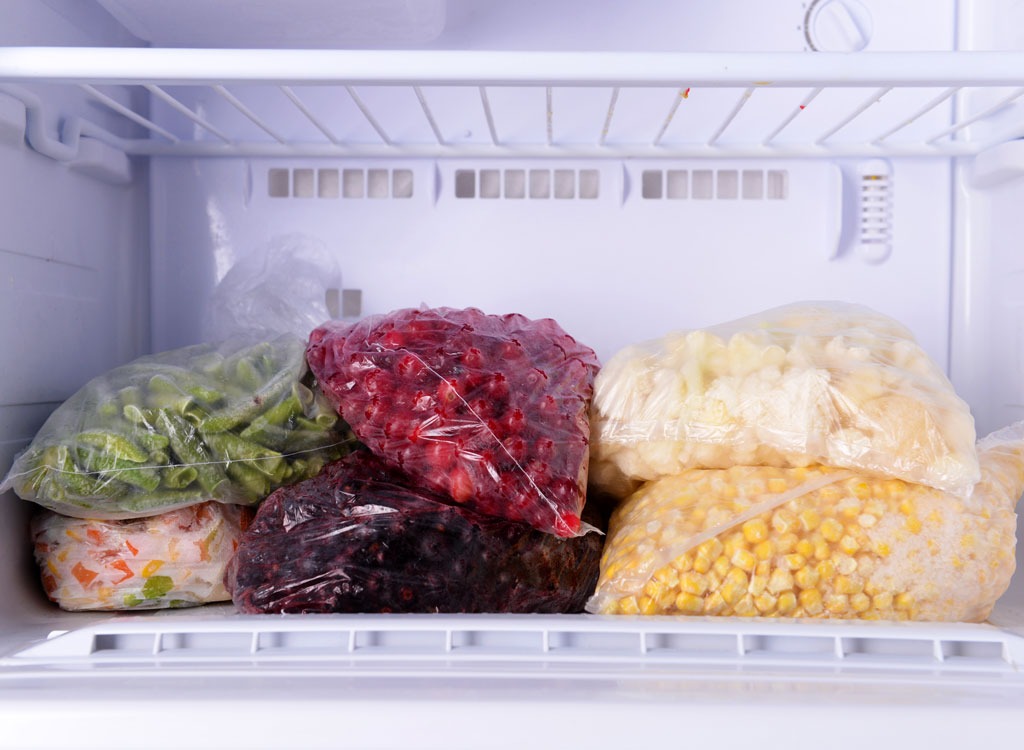
Fruit doesn’t stay fresh forever, you know. However, it gets closer to “forever” if it’s stored in the freezer rather than on your countertop or fridge. Not only will freezing blocks of pesto for a quick salmon marinade or a medley of berries for a quick smoothie make it easy for healthy foods to be at your fingertips, frozen foods may, in fact, be healthier than fresh. That’s because fresh produce loses some nutrients while sitting on the shelf, whereas frozen produce will retain those nutrients. For our top tips on chilling your product, check out the Ultimate Guide to Freezing Food.
Wake Up Early — Even on Weekends

This tip has two parts. For starters, early risers will eat better throughout the day: a study found that those who woke up around 10:45 a.m. consumed 248 more calories a day, half as many fruits and vegetables, and twice the amount fast food than those who set their alarm earlier. The second part? Establishing a daily routine—in which you wake up at the same time every day—helps create discipline and provides structure. Doing so will help this skill translate into other walks of life (such as with weight loss). According to Robin Sharma, author and leadership expert, “When I studied the creative lives of massively productive people like Stephen King and Thomas Edison, I discovered they followed strict daily routines, like when they would get up, when they would start work, when they would exercise and when they would relax.”
Take the Stairs

If you have the option of moving over standing still, take the moving option. Every minute you spend walking up the stairs, you’ll burn an extra 9 calories (if you weigh 160 pounds). It might not seem like a lot, but incorporating this tip every day for a year can help you burn off an extra pound! For more inspiration, check out these 31 Sneaky Ways to Work Out—Without Hitting The Gym.
Don’t Skip Meals
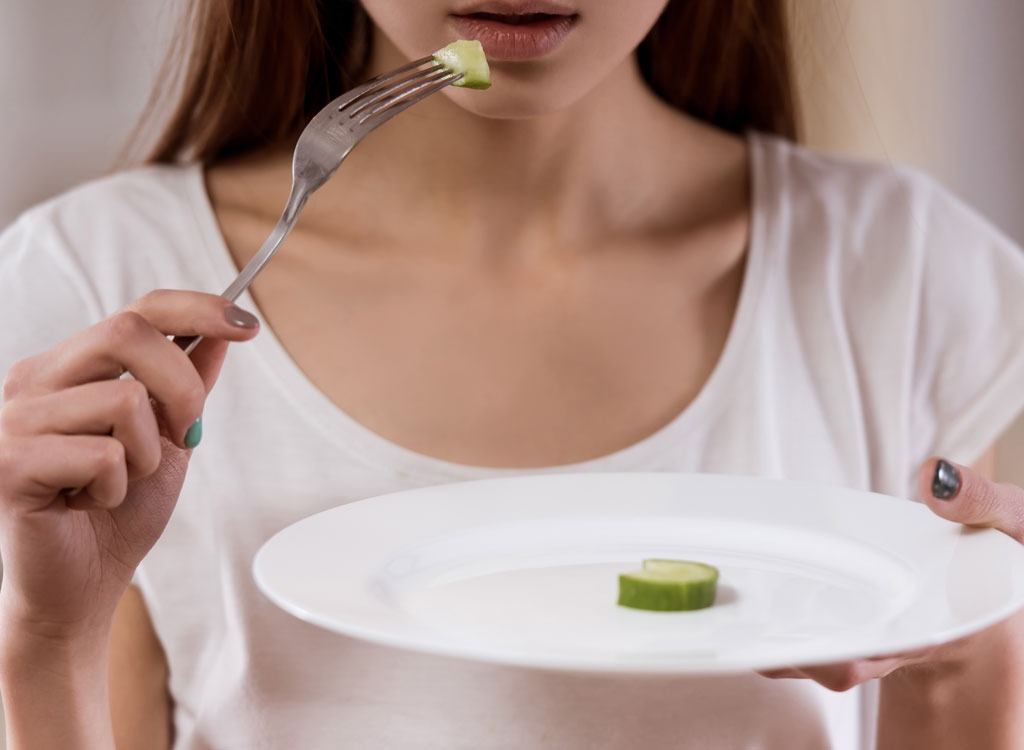
You’ll not only be hungry—you might end up gaining weight. A report by the National Institute of Health (NIH) showed that when dieters skipped a meal, they reported feeling hungrier when the next meal rolled around. Experts explain that when you don’t eat when you’re hungry, your body can run through its blood glucose stores, which increases production of the hunger hormone ghrelin and then ramps up your appetite even more.
Make Your Bedroom Sacred

Listen up night owls! Sleep is important. So much so, in fact, that one study found that getting eight and a half hours of shut-eye each night dropped cravings for junk food a whopping 62 percent and decreased overall appetite by 14 percent! So how can you reach that number? Create nightly routines, and keep your bedroom for sleeping. That way, your body will recognize every time it steps into the sanctuary, it’s time to sleep, not watch TV, scroll through emails on your phone, or snack.
Walk More, Drive Less

It’s a simple notion, really. Walking burns more calories than sitting. But, wait, there’s more! If you have diabetes or if you’re overweight, a taking a short 10-minute walk after a meal can help lower your blood glucose levels by 12 percent more than those who concentrated their walk into one 30-minute session, according to a study in Diabetologia. It’ll help you clear your mind, loosen your jeans, and save money on gas.
Eat Most of Your Calories, Don’t Drink Them

Whether it’s a sugary coffee from Starbucks or a soda from McDonald’s, we all indulge in an easy-to-sip beverage once in awhile. But don’t make juices your only meal. Because your body doesn’t register liquid calories like it does solid calories, drinking a beverage doesn’t satisfy your hunger pangs as much as chomping down on popcorn or a granola bar. In fact, you may end up drinking more (and can consume a greater number of calories) until you feel satisfied than you would if you ate solid food, according to a study published in the American Journal of Clinical Nutrition. Lisa Hayim MS, RD suggests picking up crunchy vegetables, like carrots. She explains: “When we chew, we allow more time for our brain to signal our bodies that food is coming in. Once this process begins, we are closer to reaching our ‘full’ point. Eating foods that take longer to chew ensures that we are more aware of our satiety cues.”
Surround Yourself With Supportive People

Your mom was right. Who you hang out with does matter. In fact, a study published in the American Journal of Health Behavior found that young adults consumed more fast food and sugar-sweetened beverages if they thought that their family and friends consumed a lot of it. By the same token, people’s beneficial dietary behaviors also depended on their friends; Those who thought their besties normally ate a lot of veggies also ate a lot of the high fiber foods. Solution? Surround yourself with individuals who have the qualities you wish to possess.
Try New Things

In life, but also in your exercise routine. It keeps your time at the gym interesting, and it also keeps your calorie-burning furnace humming. Dr. Sean M. Wells, personal trainer and author of Double-Crossed: A Review of the Most Extreme Exercise Program explains that switching up your routine is a must: “If you’ve been doing the same workout for the past few months, your body isn’t being challenged anymore, meaning it’s not burning as many calories as it otherwise could,” he explains. So sign up for a pilates class, try yoga next week, then hit up a shadow boxing class the week after!
Make Enough For Leftovers
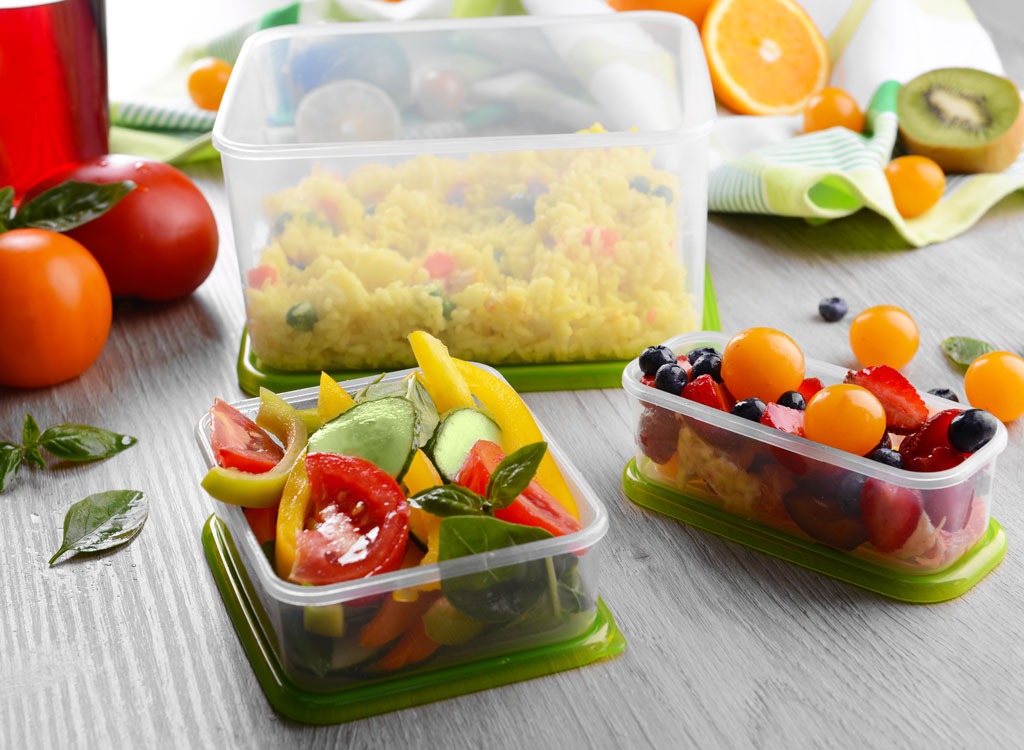
After a long day at the office followed by a short sweat session, it’s not uncommon to come home to an empty fridge and an insatiable appetite. Rather than resort to ordering high-calorie take-out, follow one of our 25 Tips for Meal Prepping and just double (or even triple!) a recipe to cook on Sunday. You can thank yourself later!
Play Outside

Can’t stand the gym? Don’t worry about it, just get outside and toss a frisbee around. Or throw a pigskin. Or even kick a ball. These physical activities can be just as beneficial when it comes to protecting your cardiovascular health, according to the American Heart Association. That’s because “physical activity is anything that makes you move your body and burns calories.” And those expert-recommended 30 minutes can be anything from a brisk walk to mowing your lawn. Plus, being outside means more exposure to the immune-boosting, happiness-enhancing vitamin D!
Bulk Up Salads With Protein
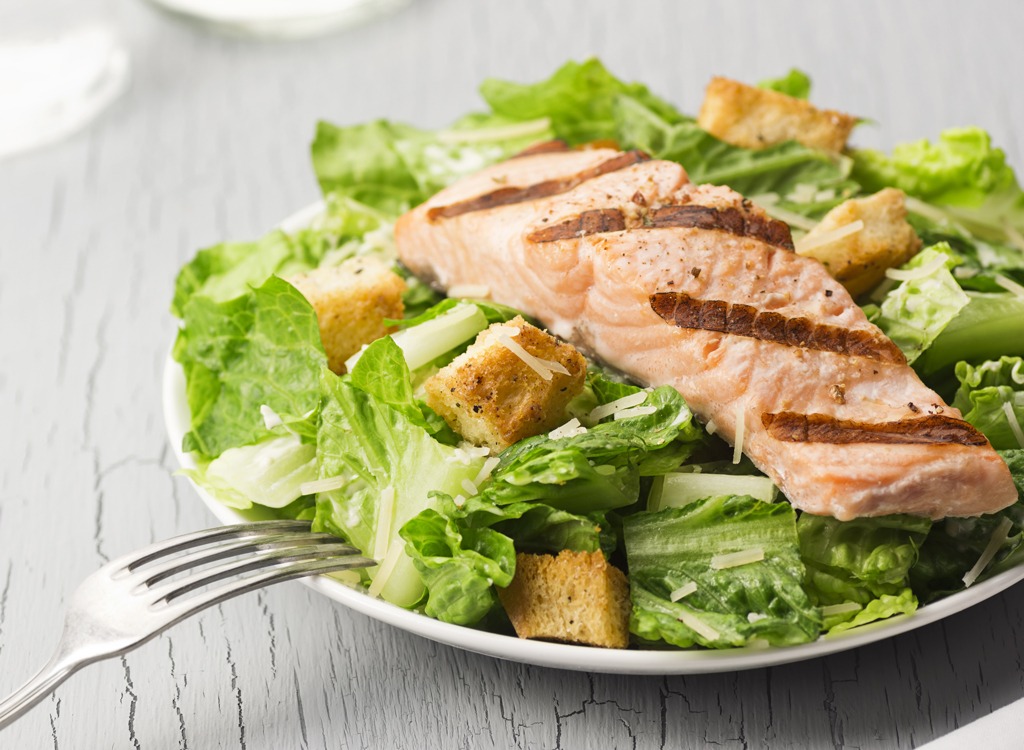
Everyone knows salads are healthy, but if you’re not filling up your plate with protein or healthy fats, your lunch could be making you fatter—not fitter. That’s because without slow-digesting protein to keep you feeling satisfied and healthy fats to help your body absorb fat-soluble, health-boosting vitamins, you’ll be tired and hungry soon after munching on your lettuce. We recommend adding avocado, nuts, quinoa, beans, eggs, chicken, salmon, berries, or apples.
Develop Habits That Help You Relax

Being under constant stress could be negating all the health and weight-loss benefits of your healthy eating plan, according to a study recently published in Molecular Psychiatry. The Ohio State University researchers found that a diet of healthy fats caused as much inflammation in rats than one in unhealthy fats like omega-6s when rats were stressed out. That’s not all; stress can also cause you to crave unhealthy foods and pump out the fat-storing hormone cortisol. Feeling a little ticked off? Try reaching for stress-fighting Rooibos tea (one of the 11 Best Foods For Fighting Stress), reading your favorite book, or taking a walk.
Make Drinking Water a Priority

Staying hydrated not only allows your metabolism to continue humming along at a fast clip, but it can also help prevent your brain from confusing thirst as hunger. Because the same part of your brain controls your thirst and hunger, it can get confused and make you feel hungry when you’re really just in need of a glass of water. Oh, and did we mention that keeping a bottle of water handy will also fill you up and keep your tummy from looking bloated? It’s true!
Get Enough Rest

Getting a solid night’s rest (which can vary from person to person, but is an average of 7 to 8 hours) has been proven to reduce cravings, boost metabolism, stave off bad food choices, improve your mood, reduce stress, and maintain a healthy immune system. What are you waiting for? Go ahead and hit the hay!
Snack Often

Instead of powering through your hunger pangs until lunch, try nibbling on some high protein snacks. Studies show that consuming a 100 to 200 calorie snack between meals helps reduce binging at meal times by keeping blood-sugar levels stable and increasing feelings of fullness. If you don’t eat when you’re hungry, you may end up overindulging on high-fat and high sugar foods when it’s time to nosh, which makes for a recipe for weight gain.
Develop Your “Why”

One of the top reasons that a diet is destined to fail? The dieter doesn’t have the long term motivation or a “why.” Shedding a few before your second cousin’s wedding seems reasonable in the short term, but being alive to see your grandchild’s birth or being able to go on a hike with your kids are better reasons to live at a healthy weight. Recalling the advice of The Biggest Loser trainer Jennifer Widerstrom, Sonya Jones, a PE teacher who lost 104 pounds on the show reminds us, “Get back to your why and remind yourself of it every day. This simple exercise can make it far easier to stay on track with your new healthy lifestyle.” Ready to get started? Take a look at these 40 Tips for Motivation That Actually Work.
